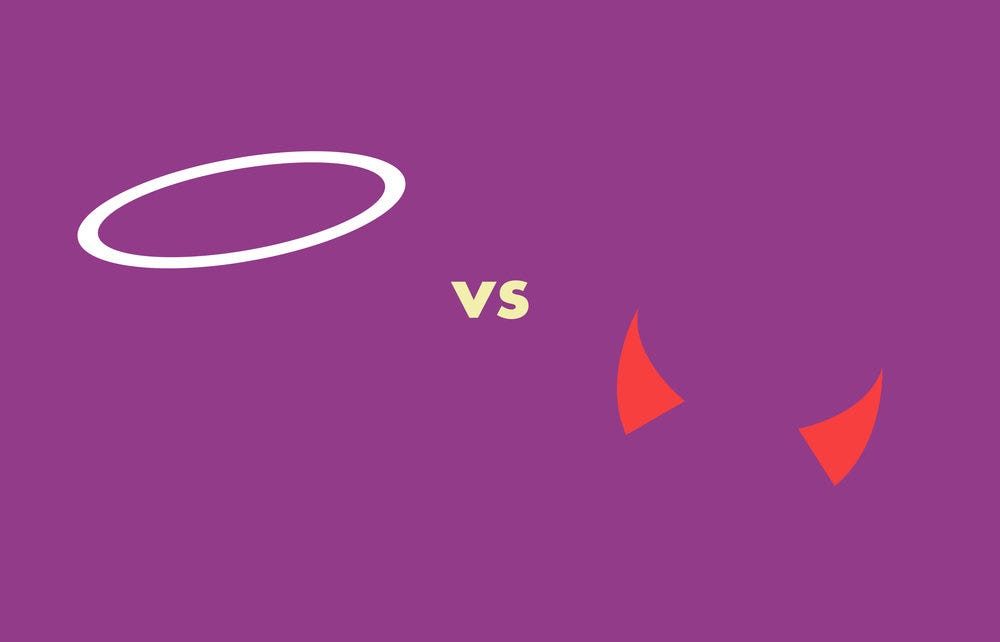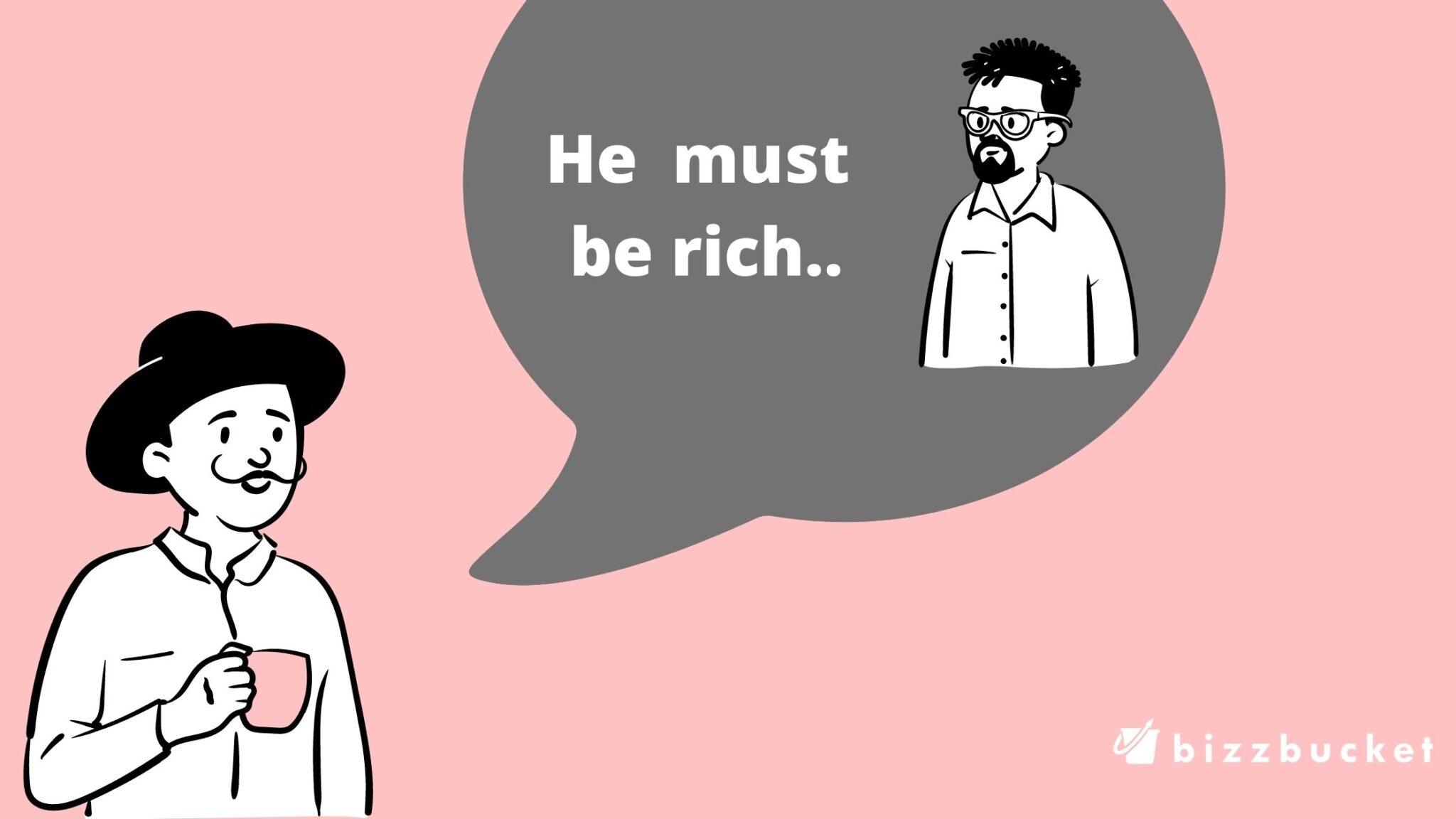If one candidate becomes favored because of it, it could result in the hiring process being biased. The halo effect can mask problems.
Why Is The Halo Effect Bad, This causes them to see other characteristics of that person, business, or product in a positive light as well (i.e. The halo effect is a type of cognitive bias, where we tend always to form positive opinions of another person or a group (company, for example), based on our previous overall positive impression of them.

If one candidate becomes favored because of it, it could result in the hiring process being biased. Is the halo effect good or bad? The halo effect is a cognitive bias that causes people’s impression of one aspect of something to influence their impression of other aspects of it. This is a cognitive bias that may lead to bad decisions.
The halo effect is a cognitive bias that causes people’s impression of one aspect of something to influence their impression of other aspects of it.
Why is halo effect bad? The halo effect also may come into play during the hiring process. Can the halo effect be bad? In religious art, a halo is often portrayed over a saint�s head, bathing the individual in a heavenly light to show that that person is good. The halo effect also may come into play during the hiring process. The halo effect can lead to unfair differences in how employees are treated, especially in disciplinary issues.
 Source: inc.com
Source: inc.com
The halo effect happens when a customer makes a judgment about a person, business, or product which makes a positive impression on them. The halo effect is a type of cognitive bias wherein you may be strongly influenced by your idealized views of an individual. The halo effect is a type of cognitive bias, where we tend always to form.
 Source: 42courses.medium.com
Source: 42courses.medium.com
It can influence managerial skills, hiring process, relationships between employees, performance reviews, and so much more. The halo effect, particularly in relation to attractiveness, boils down to “what is beautiful is good.” studies have shown that physically attractive people are assumed to have a better personality, and be more competent and successful. Why is the halo effect bad? Here, a.
 Source: slideshare.net
Source: slideshare.net
The halo effect can lead to unfair differences in how employees are treated, especially in disciplinary issues. The halo effect is a cognitive bias that causes people’s impression of one aspect of something to influence their impression of other aspects of it. The halo effect happens when a customer makes a judgment about a person, business, or product which makes.
 Source: mdpi.com
Source: mdpi.com
What you say is always true. If users like one aspect of a website, they�re more likely to judge it favorably in the future. The halo effect is a cognitive bias that causes people’s impression of one aspect of something to influence their impression of other aspects of it. The halo effect also may come into play during the hiring.
 Source: alyjuma.com
Source: alyjuma.com
It can influence managerial skills, hiring process, relationships between employees, performance reviews, and so much more. The halo effect can lead to unfair differences in how employees are treated, especially in disciplinary issues. On the other hand, the halo effect is dangerous to an organization in a few ways. Just because you’re doing well, doesn’t mean every part of. The.
 Source: dianegottsman.com
Source: dianegottsman.com
The horn effect, which is closely tied to the halo effect, is the cognitive bias whereby one’s opinion of another is unduly shaped by a single negative trait. It can lead to poor judgements and affect choices, for example when recruiting new employees or choosing a romantic partner. Just because you’re doing well, doesn’t mean every part of. Here, a.
 Source: betterlovemovement.com
Source: betterlovemovement.com
The halo effect is a cognitive bias that affects our judgement of a person’s character. The halo effect is a type of cognitive bias, where we tend always to form positive opinions of another person or a group (company, for example), based on our previous overall positive impression of them. Can the halo effect be bad? Rater bias in performance.
 Source: jmark.com
Source: jmark.com
The halo effect can lead to unfair differences in how employees are treated, especially in disciplinary issues. However, it can lead to false impressions and result. The halo effect can impact organizations, locations, products and delivery/communications channels, as well as our judgments of other people. Here, a negative impression of someone is influencing the evaluation of all the person’s traits..
 Source: business2community.com
Source: business2community.com
In religious art, a halo is often portrayed over a saint�s head, bathing the individual in a heavenly light to show that that person is good. The halo effect also may come into play during the hiring process. The halo bathes the entire body of the person in a bright light, making them look almost perfect. The halo effect is.
 Source: andamaninspirations.com
Source: andamaninspirations.com
Why is the halo effect bad? The halo effect is a type of cognitive bias, where we tend always to form positive opinions of another person or a group (company, for example), based on our previous overall positive impression of them. Rater bias in performance appraisal: Why the halo effect is bad? If users like one aspect of a website,.
 Source: bizzbucket.co
Source: bizzbucket.co
The halo effect is a cognitive bias that affects our judgement of a person’s character. The horn effect, which is closely tied to the halo effect, is the cognitive bias whereby one’s opinion of another is unduly shaped by a single negative trait. The halo effect is one of the most common biases; The halo effect is a cognitive attribution.
 Source: slideshare.net
Source: slideshare.net
Websites are impacted by the halo effect. The halo bathes the entire body of the person in a bright light, making them look almost perfect. This is a cognitive bias that may lead to bad decisions. The halo effect can lead to unfair special treatment in performance appraisals. That is why you should learn to spot it in yourself and.
 Source: blog.truemindcapital.com
Source: blog.truemindcapital.com
The halo effect can lead to unfair differences in how employees are treated, especially in disciplinary issues. The halo effect makes it so that perceptions of one quality lead to biased judgments of other qualities. That is why you should learn to spot it in yourself and others! This causes them to see other characteristics of that person, business, or.
 Source: healthline.com
Source: healthline.com
It can influence managerial skills, hiring process, relationships between employees, performance reviews, and so much more. On the other hand, the halo effect is dangerous to an organization in a few ways. The halo effect can impact organizations, locations, products and delivery/communications channels, as well as our judgments of other people. The halo effect can lead to unfair differences in.
 Source: medium.com
Source: medium.com
On the other hand, the halo effect is dangerous to an organization in a few ways. Why is halo effect bad? The halo effect is a type of cognitive bias, where we tend always to form positive opinions of another person or a group (company, for example), based on our previous overall positive impression of them. Websites are impacted by.
 Source: en.shortcogs.com
The halo effect is a type of cognitive bias wherein you may be strongly influenced by your idealized views of an individual. Why is the halo effect bad? Just because you’re doing well, doesn’t mean every part of. On the other hand, the halo effect is dangerous to an organization in a few ways. Your decisions are the right ones;
 Source: buyyoumoney0.blogspot.com
Source: buyyoumoney0.blogspot.com
Just because you’re doing well, doesn’t mean every part of. If we discover one thing that we like about a person, the halo effect casts a “halo” on other parts of their personality. This effect distorts the way you may see a person or a product, thinking that the person or item is. The halo effect is a cognitive attribution.
 Source: psycho.shawnzhong.com
Source: psycho.shawnzhong.com
The halo effect makes it so that perceptions of one quality lead to biased judgments of other qualities. The halo effect is a type of cognitive bias wherein you may be strongly influenced by your idealized views of an individual. The halo effect can lead to unfair differences in how employees are treated, especially in disciplinary issues. Your decisions are.
 Source: lsbc.lu
Source: lsbc.lu
The halo effect is a cognitive bias that affects our judgement of a person’s character. The halo effect is the positive bias that a person (or entity) generates due to the good impression they have made in the past. This effect distorts the way you may see a person or a product, thinking that the person or item is. The.
 Source: andamaninspirations.com
Source: andamaninspirations.com
It can influence managerial skills, hiring process, relationships between employees, performance reviews, and so much more. The halo effect is a cognitive bias that affects our judgement of a person’s character. This is a cognitive bias that may lead to bad decisions. The halo effect is particularly harmful to recruiting efforts. Here, a negative impression of someone is influencing the.
 Source: developgoodhabits.com
Source: developgoodhabits.com
The halo effect is a cognitive bias that affects our judgement of a person’s character. The halo), even if they do not know if this is true. Why the halo effect is bad? The halo effect happens when a customer makes a judgment about a person, business, or product which makes a positive impression on them. Websites are impacted by.
 Source: driveresearch.com
Source: driveresearch.com
On the other hand, the halo effect is dangerous to an organization in a few ways. What you say is always true. In religious art, a halo is often portrayed over a saint�s head, bathing the individual in a heavenly light to show that that person is good. The halo effect is a cognitive bias that affects our judgement of.
 Source: alyjuma.com
Source: alyjuma.com
What you say is always true. The halo effect is a cognitive attribution bias as it involves the unfounded application of general judgment to a specific trait (bethel, 2010; For example, the halo effect can cause people to assume that someone will have an interesting personality, simply because they find that person to be physically attractive. The halo effect is.
 Source: goodreads.com
Source: goodreads.com
This causes them to see other characteristics of that person, business, or product in a positive light as well (i.e. The halo effect is a type of cognitive bias, where we tend always to form positive opinions of another person or a group (company, for example), based on our previous overall positive impression of them. The halo effect is particularly.
 Source: tuhinzdiary.com
Source: tuhinzdiary.com
The halo effect can mask problems. The halo effect is a bias that says that if you think positively about something, it extends to everything else you can think about that thing. Rater bias in performance appraisal: If we discover one thing that we like about a person, the halo effect casts a “halo” on other parts of their personality..








